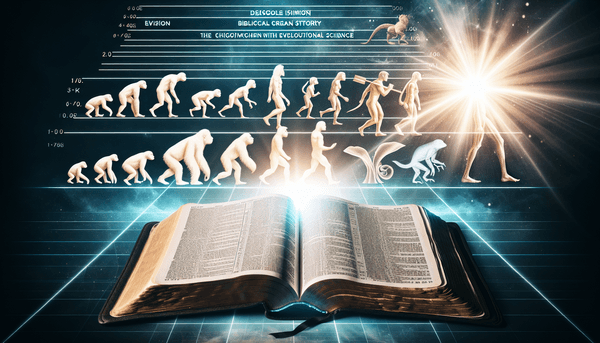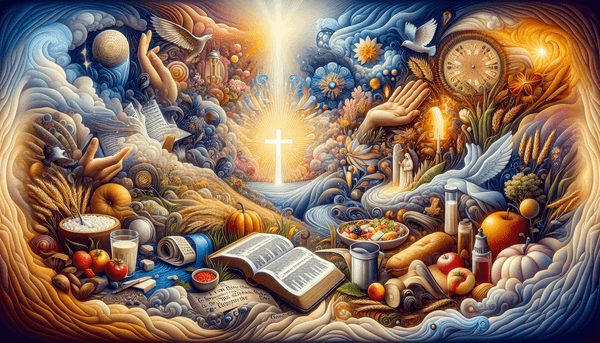The Presence of Suffering and Evil
The presence of suffering and evil in the world often leads us to question the nature of free will and divine purpose. The story of Adam and Eve's choice in the Garden (Genesis 3:6-7) illustrates the complex interplay between human autonomy and the resulting consequences. This narrative invites us to understand free will within the context of a world tainted by sin and yet still under God's sovereign goodness. The mystery of divine purpose amidst suffering is echoed in the prophetic words of Isaiah, who reminds us that God's thoughts are not our thoughts, nor are His ways our ways (Isaiah 55:8). As we navigate the challenges of life, our faith is tested, and we are called to trust in God's overarching plan, even when it surpasses our understanding. Amidst this, the Bible presents the promise of redemption through the life and resurrection of Jesus Christ, offering hope and a future restoration where suffering will cease (Revelation 21:4). As believers, we are called to be agents of comfort and healing, embodying the compassion of Christ in a hurting world.
Conclusion
As we conclude this exploration of God's will, the wonders of creation, and the reality of suffering, we are reminded of the depth and complexity of biblical teachings. These discussions not only inform our intellect but also shape our hearts and actions. By embracing the wisdom found within Scripture, we can navigate life's uncertainties with a sense of purpose, grace, and hope. Let us carry forward the insights gained from this journey, applying them to our lives and allowing them to transform us from within. May we be ever mindful of the divine narrative that continues to unfold, guiding us toward a future filled with redemption and peace.
FAQ
Q: What does it mean that humans are made in God's image?
A: Being made in God's image (Genesis 1:26-27) means that humans reflect certain attributes of God, such as the ability to reason, create, and relate to one another in community. It signifies inherent value and a special role within creation to steward and care for the earth.
Q: How can we understand free will when there is so much suffering in the world?
A: Free will allows humans to make choices, and unfortunately, some of these choices lead to suffering. However, the Bible teaches that God's sovereignty and goodness are overarching, and He can work through human decisions to bring about His purposes (Romans 8:28). The presence of suffering does not negate God's love or power but instead calls for trust in His greater plan.
Q: What is the role of grace in understanding God's will?
A: Grace plays a central role in understanding God's will as it represents God's unmerited favor toward us. Through grace, as described in Ephesians 2:8-9, we receive the power and freedom to follow God's will, not by our own strength but through the gift of salvation in Christ.
Q: How does the Bible address the issue of evil?
A: The Bible addresses evil through the narrative of the fall, the laws given to guide moral living, and the ultimate redemption found in Christ. It presents a world affected by sin while offering hope for restoration and the ultimate defeat of evil (Revelation 21:4).






